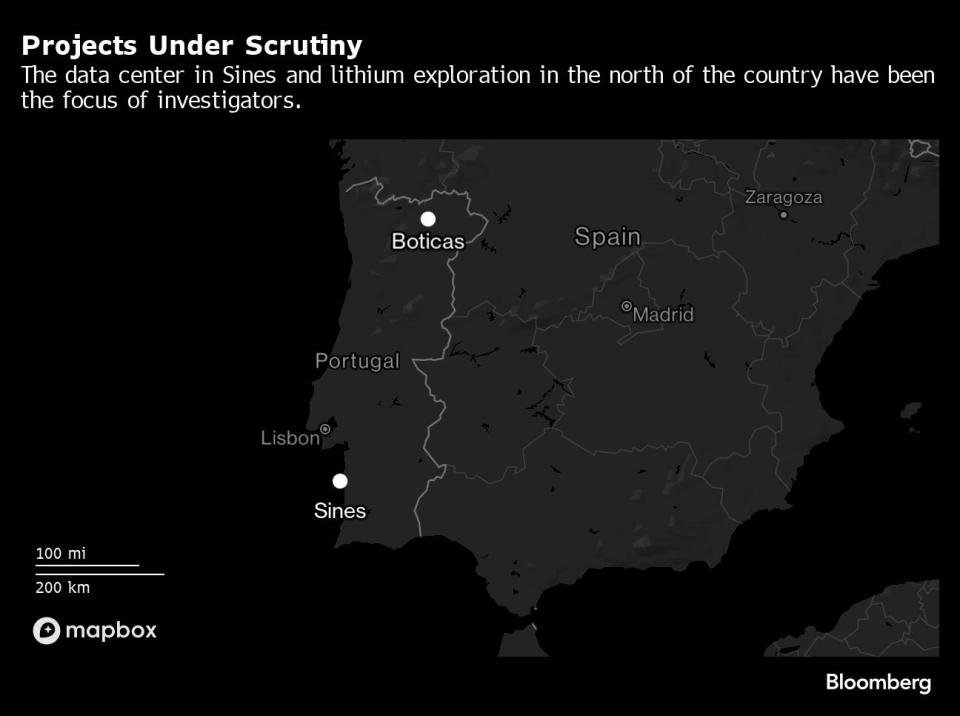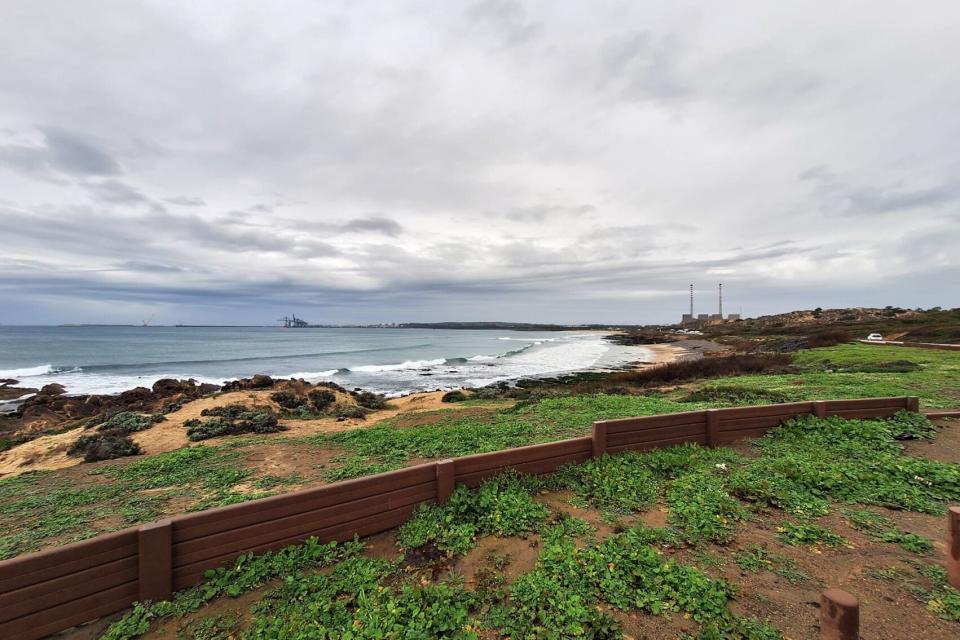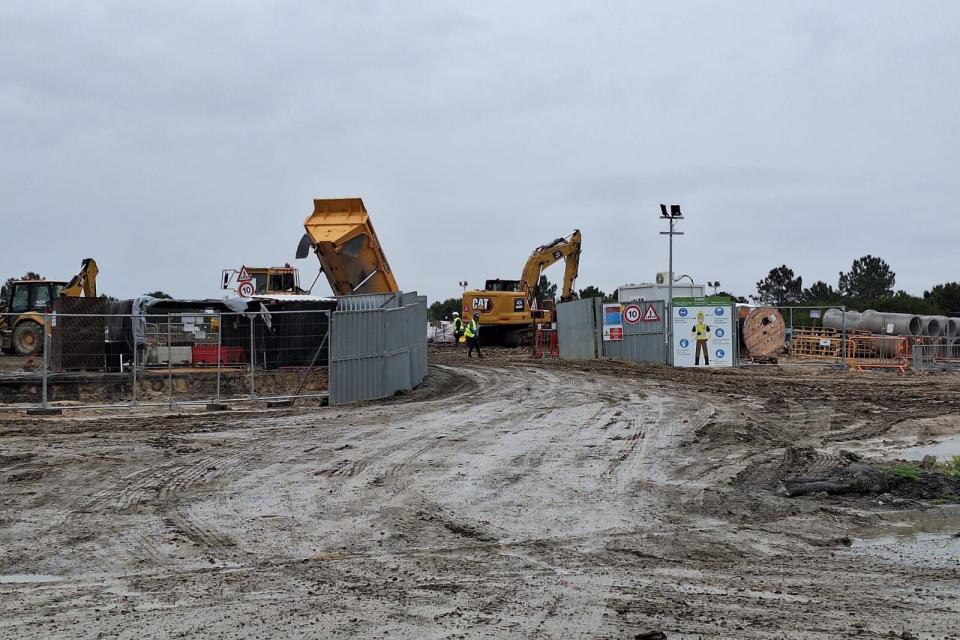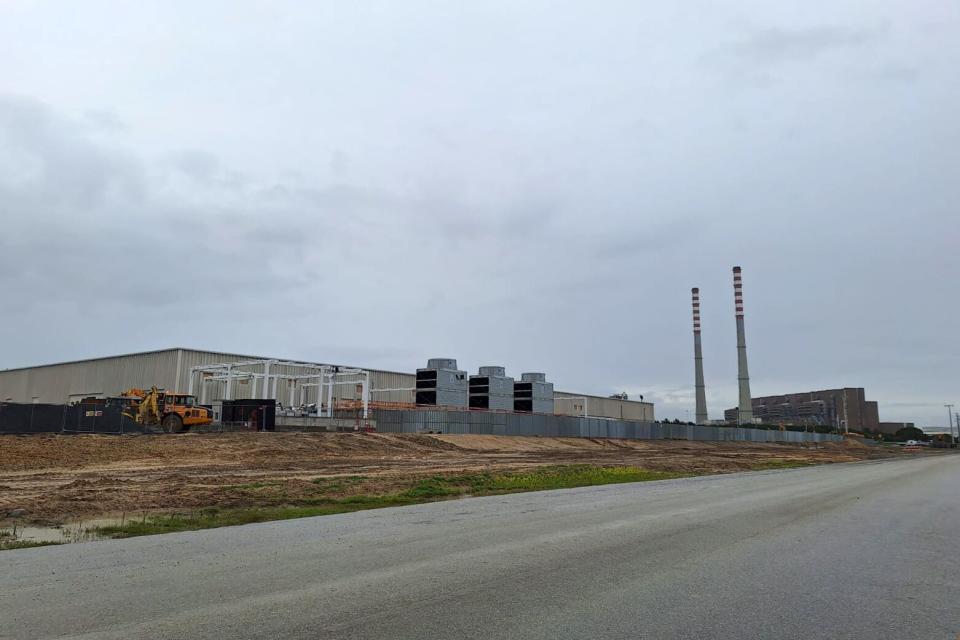Economic Dreams Turn Into Political Nightmare for Portugal
(Bloomberg) -- A truck sloshes through the mud at the busy building site on the coast south of Lisbon. The towers of a decommissioned power plant loom over the area, while the silhouette of Portugal’s only oil refinery is visible in the distance along with the cranes of the deepwater port.
Most Read from Bloomberg
Florida Governor DeSantis Drops Out of 2024 Race, Endorses Trump
Hong Kong Stocks at 36% Discount Show True Depth of China Gloom
Morgan Stanley, JPMorgan Say Buy the Dip After Treasury Rout
Under construction is a data center powered by clean energy that promises to be one of the biggest in Europe and part of the country’s plan to bring its economy more up to date. Yet the project in the town of Sines is also at the heart of a scandal that shocked the nation and paved the way for an election at an awkward time for Europe.
The €3.5 billion ($3.8 billion) development is central to an investigation into allegations government officials were influenced to speed proposals through the planning stages. While the probe could take years, the political fallout has been unfolding more rapidly.
Portugal, known more of late for Lisbon’s record tourism, property boom and digital nomads, hasn’t been used to such high drama since a former premier was detained for alleged tax fraud a decade ago.
The latest scandal has exposed some popular discontentment about an economy lagging behind once-poorer nations in Eastern Europe, low wages, a sclerotic legal system and political cronyism.
Outgoing Prime Minister Antonio Costa was re-elected in a landslide two years ago. He promised to revamp the economy — partly underpinned by green and digital projects — and confront a housing crisis exacerbated by a now closed “golden visa” program for richer foreigners to buy up real estate.
But his career was abruptly halted on Nov. 7 when he unexpectedly resigned after eight years in the job amid the investigation involving the project to build the data center and two lithium exploration concessions.
The country will vote on March 10, with his incumbent Socialists leading opinion polls. Like in so many other parts of Europe, though, support for the far right is surging and the potential for disruption is greater. The wildcard is a large swath of undecided voters, according to Antonio Barroso, managing director at political advice firm Teneo.
“It’s a very weird election — it’s not that the term expired, or the prime minister decided this was an advantageous time to call an election,” he said. “How big a moment this election will be for Portugal will depend on how difficult it will be to form a government.”
The drama started with a police raid on government offices and the arrest of Costa’s chief of staff. The chief executive officer of Start Campus, the company building the Sines data center, was also detained along with another executive. Both have since resigned from their posts, though neither has been formally accused of any criminality.
What prompted Costa to quit was a paragraph in the statement from prosecutors. It stated that a Supreme Court inquiry might look into whether he intervened to “unblock” certain procedures involving the projects.
Costa, 62, denies all wrongdoing. Governments have to attract investment, fight bureaucracy and expedite licensing, he said.
The data center was required to meet all environmental rules, Costa added, while Start Campus said it strives for the “highest standards” in every stage of the project. A judge decided on Nov. 13 to release the people detained in the probe, while forbidding two from traveling abroad.
Besides the data center, prosecutors are examining two exploration contracts for lithium, a critical material for use in electric vehicle batteries. London-based Savannah Resources Plc won environmental approval for a mine last year and announced its drilling program for the site close to Boticas in the north of the country near the border with Spain.
Investigators visited Savannah locations in Portugal. The company said none of its employees is part of the probe and it has always acted lawfully.
Searches were also carried out nearby at the offices of Lusorecursos SA, the company planning to extract lithium from near the site of an old tin mine. CEO Ricardo Pinheiro said nobody at the company was questioned or included in the investigation.
The trouble for Costa was that even though the prosecutors have so far found no evidence of crime, police discovered envelopes of cash in the office of his chief of staff. Costa dismissed the aide and apologized on national television, but said it’s unlikely he will hold public office again, given how long the investigation will last.
In December, the Socialists picked Pedro Nuno Santos, a former infrastructure minister, as his replacement. At a party congress in early January, Santos said he intends to “open a new cycle in the country and ensure there are answers for the problems the whole country faces.”
Anger over housing, surging living costs and a pay controversy at state-owned airline TAP SA were challenges already facing Costa before the investigation. For the opposition parties, the focus will be on how to capitalize on the troubles — old and new.
Costa has also been criticized for drawing his cabinets and team members from a small group, sometimes with family links. One of his governments included among its ministers a married couple, and a father and daughter.
“The Socialist Party took over the state and thinks it’s the owner of everything,” Luis Montenegro, the leader of center-right PSD party, said in December. “We need more of a future, because the Socialist Party failed in everything that’s important in the social and economic life of the country.’’
Sines encapsulates what the government has identified as that future, and its past. It sits on the Atlantic at the intersection between big energy facilities and a protected coastline that stretches southwards.
Next to the town’s castle is a statue of 15th century explorer Vasco da Gama, the first man to sail to India from Europe. Today, Portugal aspires to be on the cutting edge of technology and green energy.
At a restaurant facing the inland wall of the castle, manager Carlos Grulha, 53, said “everyone spoke” about the raids and arrests on Nov. 7. He’s lived in Sines since he was two and sees benefits from the data center and other new projects in the area.
But, as ever in Portugal, the question is where people can affordably live, he said. “Now there’s no housing for all those people,” said Grulha. “There’s a lot of work and there are no houses.”
Maria, a 70-year-old pensioner who used to work at the Sines port administration, said such projects at least ensure that Portugal can keep moving forward as a country. Ana, 32, a manager who also works as a health and nutrition coach, agreed.
“These projects will always bring jobs,” said Ana. “I don’t believe these projects will stop. They may suffer some delays. The expectation is that they’ll go ahead.” Both declined to be identified by their full names when talking about politics.
Start Campus said both its shareholders, investment firms Davidson Kempner Capital Management LP and Pioneer Point Partners LLP, are committed to the project. The company reckons it will create up to 1,200 direct highly skilled jobs and 8,000 indirect jobs by 2028.
The location will help it connect to networks of fiber optic cables with Europe, the Americas and Africa. The first stage is expected to be operational around the same time as the election — and the opposition parties will be trying to keep the controversy around it in the minds of voters.
--With assistance from Henrique Almeida.
Most Read from Bloomberg Businessweek
©2024 Bloomberg L.P.

 Yahoo News
Yahoo News 








